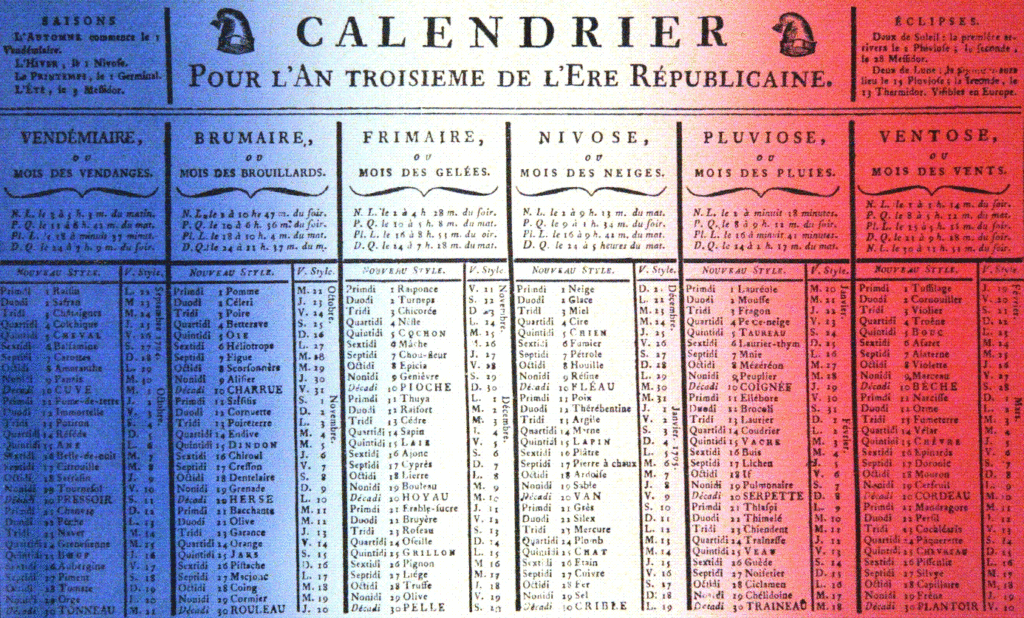1793 The French Revolution dechristianizes the calendar
Since its beginning in 1789, forces of the French Revolution had been hostile to Christianity, especially the Roman Catholic Church. The monastic system had been abolished and all church lands seized by the government. The Catholic church was severed from its allegiance to the Pope and its clergy became civil servants, forced to swear loyalty to the state; priests who refused were subject to imprisonment, exile, or death. All church bells were seized and melted down to make artillery; church silver and precious objects were stolen; crosses were torn down, tombs were desecrated, and buildings turned over to secular uses. In place of Christianity, supporters of the Revolution offered the near-atheist Cult of Reason or the deist Cult of the Supreme Being.
On October 5, 1703 the traditional calendar with its Anno Domini dating from the birth of Christ, its seven-day week and names drawn from mythology was abolished and replaced by a revolutionary calendar. All months now had 30 days, divided into 3 ten-day décades, with a 5-day year-end holiday. Saints’ days were abolished and instead of a day of rest every 7 days, there was now one every 10 days — revolutionaries despised the idleness encouraged by the old church calendar and its many holidays. Dating was to take place from the beginning of the French Republic, months were named after climatic conditions and days were named after tools or common objects. Thus, Christmas Day 1793 was officially V nivôse II, le jour de chien — Year II, the fifth day of the snowy month, the day of the dog. (It could have been worse, December 28 was “the day of manure.”) There was even a short-lived attempt to decimalize the clock: a ten-hour day, each hour with 100 minutes.

Such efforts were made to remove every-day religion from the minds of the common people but ordinary folk did not fail to notice that they now had to work more days in the year. Though governments tried to enforce the reforms, they never truly caught on and Napoleon ended the experiment on XIII frimaire XIII, January 1, 1806.